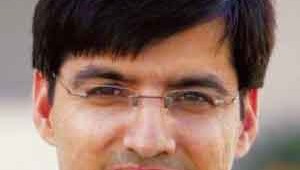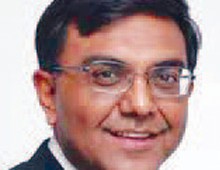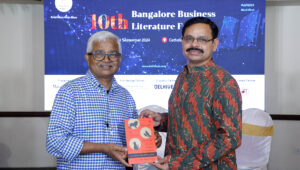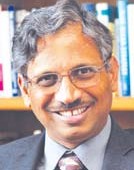When I joined Google in 2007 as a product manager, the term product management was still largely unheard of in India. I still remember my first press quotes in Times of India; it said Alok Goel, project manager, Google. When I met the journalist I told him that I am not a project manager but a product manager, he said what is the difference, it’s basically the same.
Even in the US product management in 2007 was an emerging function, it was not very well carved out. We have come to a point where it is one of the hottest roles in the country. A product manager will not be unemployed overnight, every VC keeps saying we need good product managers; we will give him a job tomorrow morning. If you take new age companies, they are all fighting a battle; it’s a battle of innovation. Big companies cannot be complacent. A garage company can innovate, disrupt and change the rules of the game and make you irrelevant.
The pace of change is happening very fast. For fighting innovation battles companies need innovation leaders, they don’t need CEOs. Innovation leaders are nothing but product leaders. Product managers are change agents, are thought leaders who bring about change and create value through innovation.
There are many international examples which are emerging, take Yahoo, after lots of CEO changes; they finally bought in a hard core product person, Marissa Meyer. She spent a decade in Google doing product management. Yahoo felt that it was lacking innovation so let’s get a product person. The initial results are very positive. Lot of examples in the industry like Satya Nadella. Steve Jobs was a great product guy. The companies are realizing that in this new age where battle is being fought around innovation, you can’t ignore it and product guys are actually taking the centre stage and coming on to the CEO stage.
There are two more characteristics in my view. Today’s companies’ need (which was not as relevant earlier) is to have a problem-solving attitude which is more important than specific functional knowledge. Second is being able to influence without formal reporting. I have been hiring now for a year and a half. It’s incredibly difficult to hire people, retain them, set up a common vision and execute. Gone are the days when we used to execute whatever our CEO or manager would tell us. Today people want partnership into the thought process, into the setting of vision, they want to feel partnership as employees and hence leadership beyond formal leadership is extremely crucial at that point of time.
What makes a good product manager?
In my view it is more of a philosophical kind of thinking; it’s not a specific skill set, it’s not a specific course. It’s a hands-on learning when you surround yourself with good quality people, the way they work, you observe them and work with them and overtime you become a good product manager. It’s not about specific training; it’s something that you learn and not get trained for.
Three things that have worked as a philosophy for me, they are not necessarily statements: While making decisions, learning is of paramount importance. When I talk about learning it becomes very difficult when you are making choices or tradeoffs. Often you will make a trade off where you either have a choice of long-term learning or you have an immediate gain of some kind of a promotion or career growth or a salary hike. How do you make a decision at that point of time?
Let me share an example. Sanjay Jain is with Costa Labs, he was a project manager in Google and he had all kinds of opportunities in Google in the product management function. But he said that he will join the Adhaar project and he ended up building the largest product for the Indian market. That’s the kind of passion for learning that he demonstrated. Today, he has the credibility of building the most gigantic product ever built (in India). Learning is paramount and it manifests itself in the process of continuous self improvement. I will use an analogy of a caterpillar to illustrate this point. All of us are like a caterpillar, you know how it moves, drags itself, so the strengths are there in the front and our weaknesses drag us. At the end of the day you will move forward only because of your strengths but you will get held up because of the drag and you can never get rid of your drag. You can only reduce the weight of the drag. You need to focus on improving this, pick one skill at a time; you never leave the attitude of learning.
Second is being inclined to take risks. You pick either of these two choices – 20% possibility of making Rs.1000 (after some time) or making Rs. 100 right now. If you are like most of the general population, you will take Rs. 100 right now. But imagine if I changed the problem and I asked you are you going to play this game everyday for the next 10 years? Will you still make the same choice? Life puts these kinds of challenges in front of us all the time. You did a tradeoff like should you do a project management course or keep fighting for a promotion in your current job. You made that choice and you clearly picked the risky one. If we keep picking the risky choices because we are risk lovers over a long term it will work out well.
I happened to meet a Nobel Prize winner in behavioral economics when I was working in Google. He said if there is one thing that I wish for my kids it is over confidence so that they are risk lovers and they grow well in their trade. We are taking risks day in and day out.
The third is learn from mistakes but mistakes made by others. Learning from others’ mistakes is very cheap. That’s a great and faster way of learning because you can observe 10 people making mistakes and you can learn from it in a single day. That’s where surrounding yourself with quality people is a wonderful thing to do. Never let that opportunity go, always grab that opportunity because learning is not just in failing. It is thinking through the mistake and how you react to it and when you work with smart people you learn how they react to a mistake. When they get stuck or get into a challenging situation and how to come out of it is the learning that we have to assimilate.
In sum, learning is paramount, be a risk taker and learn from others’ mistake.
 Excerpts of the talk at ICPM Class of Fall 2013 Graduation Party of Institute of Product Leadership, Bangalore.
Excerpts of the talk at ICPM Class of Fall 2013 Graduation Party of Institute of Product Leadership, Bangalore.












Recent Comments